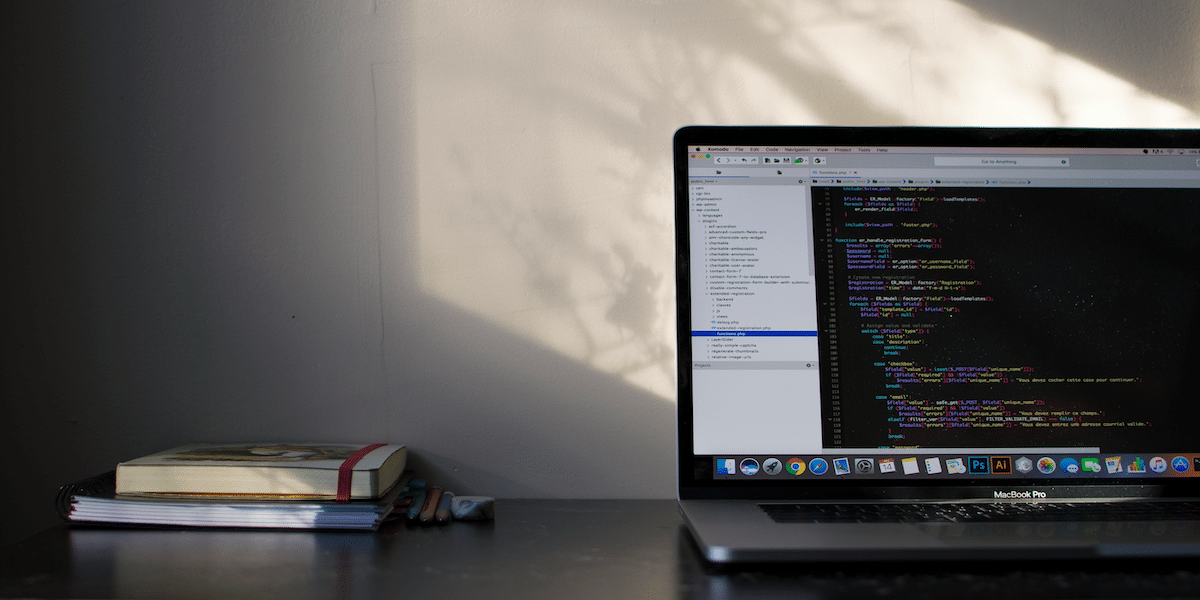Image commercially licensed from Unsplash
In the fast-paced world of technology startups, software innovations play a crucial role in driving growth and success. These innovations can range from revolutionary mobile applications to cutting-edge algorithms powering complex systems. However, with great innovation comes the need for robust protection of intellectual property (IP) rights.
In this article, we will delve into the importance of trademark and IP litigation in the tech startup landscape and explore strategies for safeguarding software innovations. We will also seek insights from legal attorney Robert McKinley, who specializes in patent and trademark litigation, to shed light on the key considerations for startups.
Understanding the Value of Software Innovations
Software innovations are at the heart of technological advancements in the startup landscape. They enable startups to develop unique solutions, disrupt existing industries, and carve out a competitive edge. These innovations can be in the form of proprietary algorithms, user interfaces, or software architectures that deliver superior performance and user experiences. Protecting these innovations is essential not only to secure a startup’s competitive edge but also to attract investment and foster growth. Software innovations are valuable assets that can differentiate startups from their competitors and open doors to market opportunities.
The Role of Trademark and IP Litigation
Trademark and IP litigation serve as powerful tools in safeguarding software innovations. They provide legal avenues to protect a startup’s software-related assets, including trademarks, copyrights, and patents. Trademark protection, for instance, establishes a recognizable brand identity, instills trust in customers, and helps startups stand out in a crowded marketplace. On the other hand, patents protect novel and non-obvious software inventions, preventing others from using, selling, or reproducing the protected technology. Copyrights safeguard original code, designs, and artistic elements within the software, ensuring that others cannot copy or reproduce these creative works. By enforcing their IP rights, startups can prevent unauthorized use, reproduction, or distribution of their innovative software products or services, safeguarding their market position and revenue streams.
Challenges in Trademark and IP Protection
Startups face several challenges when it comes to protecting their software innovations through trademark and IP litigation. These challenges arise from the unique characteristics of the tech startup landscape:
Rapid Technological Advancements:
The tech industry evolves at a lightning-fast pace, introducing new software innovations and technologies regularly. McKinley highlights this challenge, stating, “Startups need to keep up with the ever-changing technological landscape. It’s crucial that startups continually assess and update their IP strategies to ensure they align with the latest developments and adequately protect their software innovations.” This dynamic environment requires startups to stay updated on emerging technologies, closely monitor industry trends, and adapt their IP protection strategies accordingly.
Competitor Copycats:
In the highly competitive startup landscape, the risk of competitor copycats is significant. Startups must be vigilant in identifying instances of IP infringement by competitors who attempt to imitate their software innovations. The ease of access to information and the speed at which products can be replicated make it imperative for startups to protect their IP rights and enforce them when necessary. McKinley emphasizes this point, stating, “Monitoring the market for potential infringements and taking swift action against copycats is essential to protect a startup’s software innovations and maintain their competitive advantage.” By promptly addressing infringements, startups can prevent unauthorized use of their software and protect their market share.
Complex Legal Landscape:
Navigating the legal intricacies of trademark and IP litigation can be daunting for startups. From understanding patentability requirements to filing trademarks and copyrights, startups need legal expertise to effectively protect their software innovations. McKinley advises, “Seeking guidance from experienced IP attorneys can help startups navigate the complex legal landscape, ensuring their software innovations receive adequate protection under intellectual property laws.” IP laws can vary across jurisdictions, making it essential for startups to work with knowledgeable IP attorneys who understand the intricacies of software innovation protection. These experts can provide guidance on patent eligibility, trademark registration, copyright protection, and the enforcement of IP rights.
Effective Strategies for Software Innovation Protection
To protect their software innovations and mitigate the challenges faced, startups can employ the following strategies:
Comprehensive IP Strategy:
Developing a comprehensive IP strategy is paramount for startups. This strategy should encompass the identification and assessment of IP assets, including patents, trademarks, and copyrights. Startups should work closely with IP attorneys to develop a customized IP strategy that aligns with their business goals and effectively protects their software innovations. McKinley recommends conducting thorough prior art searches and due diligence to assess the novelty and patentability of software inventions. Filing for patents, registering trademarks, and securing copyrights should be integral parts of this strategy.
Proactive Monitoring and Enforcement:
Implementing proactive monitoring mechanisms helps startups identify potential instances of IP infringement early on. Regularly monitoring the market, patent databases, and online platforms can provide valuable insights into competitor activities and potential infringements. McKinley emphasizes, “Proactive monitoring combined with prompt enforcement actions sends a strong message to infringers and helps deter further unauthorized use of software innovations.” Startups should actively search for instances of copycat products, trademark misuse, or copyright infringement and take swift action to protect their IP rights. This may involve sending cease and desist letters, initiating negotiations, or pursuing legal remedies when necessary.
Collaborative Partnerships:
Building collaborative partnerships with IP professionals, including attorneys and consultants, can significantly benefit startups. These partnerships provide startups with expert guidance, assistance in IP strategy development, and support in enforcement actions. IP professionals with a deep understanding of the tech startup landscape can help startups navigate the complexities of trademark and IP litigation. By leveraging their expertise, startups can make informed decisions, identify potential risks, and effectively protect their software innovations. McKinley advises, “Engaging experienced IP professionals who understand the unique needs of startups can provide invaluable support in navigating trademark and IP litigation.”
Final Thoughts
In the tech startup landscape, protecting software innovations through trademark and IP litigation is crucial for maintaining a competitive edge and fostering growth. Startups must recognize the value of their software innovations, understand the challenges they may face, and implement effective strategies to protect their intellectual property. By developing a comprehensive IP strategy, conducting proactive monitoring, and forming collaborative partnerships with IP professionals, startups can enhance their chances of successfully protecting their software innovations. With the guidance of legal attorneys like Robert McKinley, startups can navigate the complexities of IP law and develop robust strategies to safeguard their software innovations and position themselves for long-term success in the dynamic tech startup landscape.
Bio of Robert McKinley:

Attorney Robert McKinley represents his clients in multiple areas of law, aggressively litigating, serving as local counsel, and seeking the best resolution to legal claims and disputes. He has over twenty-five years of experience in patent and trademark litigation as well as proficiency in other specialties including breach of contract and breach of employment agreement cases. In addition, Mr. McKinley holds a degree in Electrical Engineering and is skilled in working with mechanical, electrical, and computer systems and devices. With his expertise and knowledge, he provides invaluable guidance to startups in safeguarding their software innovations and navigating the complexities of trademark and IP litigation.

















